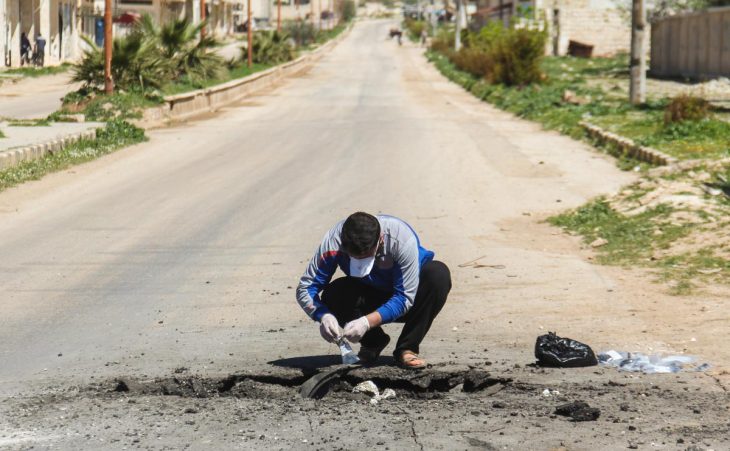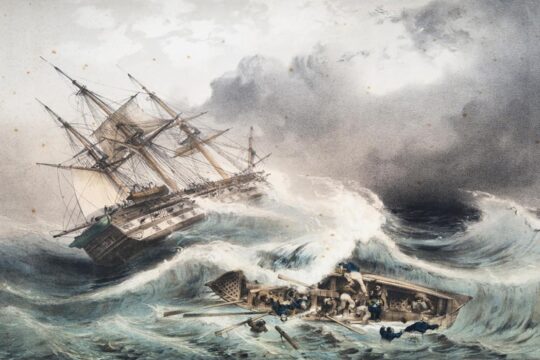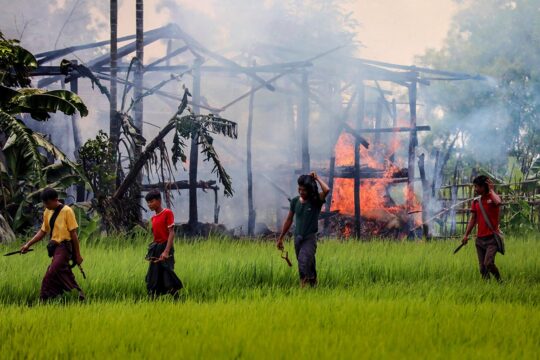Faced with the Rohingya crisis and the apparent hard-line stance of the Myanmar government on accountability, the United Nations Human Rights Council decided this September to set up an “independent mechanism” to collect evidence of international crimes (genocide, crimes against humanity and war crimes) committed in that country. This comes after UN evidence-gathering bodies were set up in 2016 for Syria and then in 2017 to help prosecute alleged crimes by the Islamic State in Iraq and the Levant (ISIL/Da’esh), in Iraq. So what is behind this new trend, and do these bodies really serve a purpose?
Experts seem hesitant as to whether their emergence represents a failure or a new creativity of the international justice community. Perhaps it is both.
Second-best options
“In a way they could be seen as a reflection of a larger failure because they are second-best options for these situations,” says Harvard law professor Alex Whiting, a former prosecutor at the International Criminal Court and International Criminal Tribunal for the former Yugoslavia. “They are stop-gaps because there hasn’t been a referral or a tribunal set up, or any other kind of accountability. So these are a replacement for that failure. On the other hand, I think you could look at it as a sign of growth and development of the international justice project. What they are addressing is the fact that the justice process moves slowly, evidence needs to be collected as quickly as possible, and so it’s a way to ensure that the slow wheels of justice don’t mean that evidence gets missed and lost. They are intermediate organizations that collect the evidence for the future.”
International justice expert and blogger Mark Kersten seems to hold a similar view. What is behind this trend, he says, is a “mix of frustration and creativity”. “It is clear that the current international political climate is less conducive to propelling accountability for international crimes than it has been for a long time,” he continues. “But atrocities in Myanmar, Syria and elsewhere continue to be committed at terrifying levels. The demand for justice far outweighs its supply. Against this context, there has been thinking about how to get around a dithering and uninterested Security Council. The result is the creation of the IIIMs [international, impartial and independent mechanisms].”
Adapting to circumstances
The mechanism for Syria was established under Resolution 71/248 adopted by the UN General Assembly on December 21, 2016, to “assist in the investigation and prosecution of persons responsible for the most serious crimes under International Law committed in the Syrian Arab Republic since March 2011”. Its mandate is “to collect, consolidate, preserve and analyse evidence” of such violations, “and to prepare files in order to facilitate and expedite fair and independent criminal proceedings, in accordance with international law standards, in national, regional or international courts or tribunals that have or may in the future have jurisdiction over these crimes.” The Syria IIIM says it is “neither a prosecutor’s office nor a court”. It is headed by Catherine Marchi-Uhel of France, who was appointed by the UN Secretary General on July 3, 2017.
The mechanism for Myanmar now being set up has a similar mandate. It is being established under a UN Human Rights Council Resolution of September 28, 2018, in the wake of a damning UN report that said Myanmar’s army chief and five other named members of the security forces should be prosecuted for international crimes in Rakhine and other states in the country where ethnic conflict continues.
The mandate of the UN Investigative Team supporting domestic efforts to hold ISIL accountable in Iraq is somewhat different. Established by UN Security Resolution 2379 of September 21, 2017, it is to work with the Iraqi authorities and include Iraqi investigative judges and other criminal experts “alongside international experts and on an equal footing”. Its purpose, according to the Resolution, is “to support domestic efforts to hold ISIL (Da’esh) accountable by collecting, preserving, and storing evidence in Iraq of acts” that may amount to international crimes, “to ensure the broadest possible use before national courts, and complementing investigations being carried out by the Iraqi authorities, or investigations carried out by authorities in third countries at their request”. It is headed by Karim Khan of the UK.
“In one way it’s different from the one for Syria and the one for Myanmar that are more independent and that are trying to collect evidence on all sides,” says Alex Whiting. “But we’re still in times of creation and experimentation of mechanisms that will vary depending on the circumstances, have different mandates, requirements and objectives depending on the political circumstances in each place, the willingness of the State and the interests of the international community.”
Preserving evidence and putting pressure on political powers
One of the questions raised is how the evidence gathered by such mechanisms may be used. “We don’t yet have a full answer to this,” says Mark Kersten, “but the sense and hope is that the evidence that is collected can be shared wherever it is needed: in universal jurisdiction trials, in prosecutions in states where alleged perpetrators have sought refuge cloaked as refugees, and potentially in a hybrid tribunal if one is eventually set up.” Kersten thinks the Syria mechanism is doing a good job so far. For the others it is too early to tell, both experts say.
So how useful are these mechanisms? “First of all the process of collecting the evidence will put pressure on decision makers and policy makers to ensure some level of accountability in the future,” says Whiting. “For example in Syria, one day the war is going to end, and now that there’s a mountain of evidence assembled it’s going to be harder for the decision makers, whether they’re in Syria or internationally, to just ignore that. The second thing is that aside from accountability, meaning criminal prosecutions, there are other purposes for documenting crimes. It can be useful for reconciliation purposes, for holding people to account in other ways, for historical purposes, for victims. And the third, obvious reason is that if ever there is some form of accountability mechanism, the fact that this evidence has been collected will be incredibly useful to making those mechanisms work.”
Can we expect to see more?
“Their creation should be welcome,” says Kersten, “although I believe that such bodies were useful even before the global justice project in Syria and Myanmar stalled. Unfortunately, such creativity in international law tends to only arise in crisis moments. It’s important to stress that no coherent and predictable system of international criminal justice currently exists. What we have is just some prosecutions in some places, some of the time. Therefore, any effort to create bodies that enrich and fill gaps in the global justice realm should be welcomed.”
There have been calls for such mechanisms to be established for other countries such as Sri Lanka. So can we expect to see more? Yes, say these experts.
“I fully expect more such mechanisms to populate the realm of international criminal justice and become a go-to option for accountability efforts,” says Kersten. “The key will be to ensure that one mechanism isn’t just mimicking another. Such bodies need to be designed with great care to the context in which they are to operate and the violence to which they are a response. Otherwise, they could suffer from the same critiques of Courts – being too divorced from local realities and communities. If they can be sensitively and smartly designed, I think they could prove an invaluable addition to efforts to build a coherent system of global justice that responds in an effective and timely manner to the demand for accountability.”
“There have already been some rumblings about whether there should be a permanent evidence gathering mechanism set up,” says Whiting. “I’m not sure anyone has the appetite for that, because it feels like a mini-ICC, but the point is I think there will be more of these mechanisms, because there’s a genuine need for it.”







